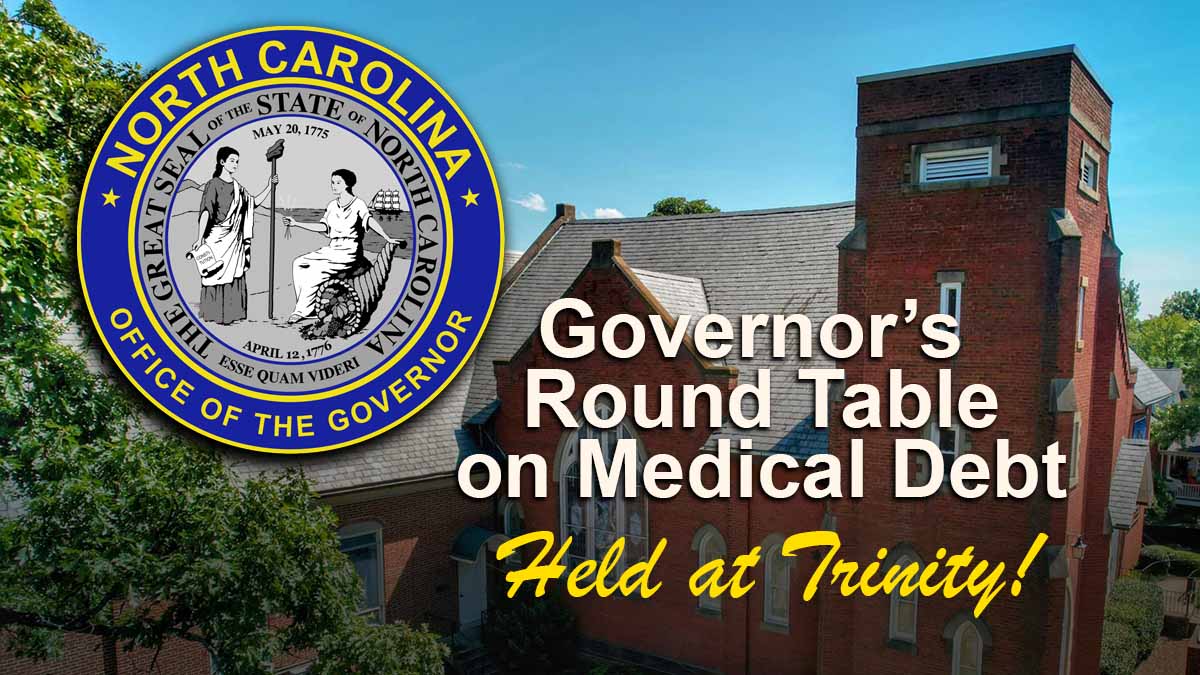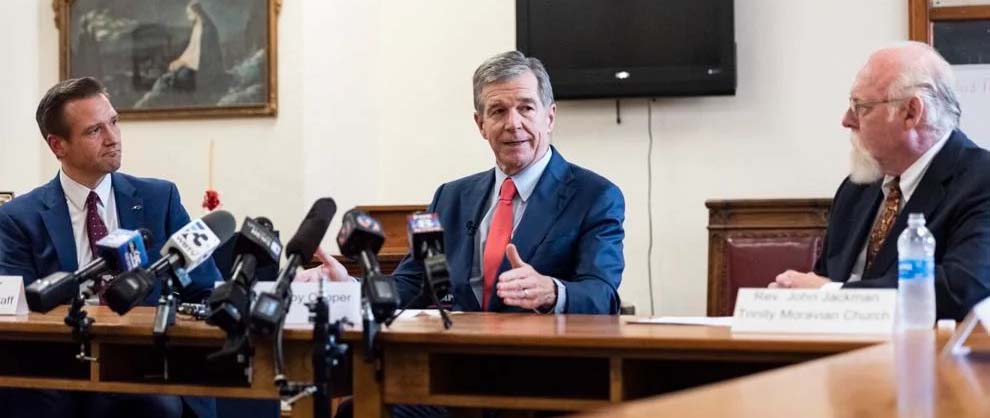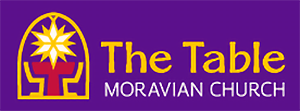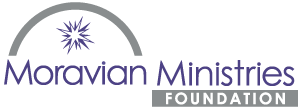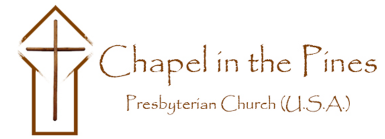On Tuesday, July 23, NC Governor Roy Cooper visited Trinity Moravian Church to learn more about the church’s efforts relieving medical debt through the Debt Jubilee Project. The visit included a roundtable discussion to better understand how recent actions to relieve medical debt could benefit millions of North Carolinians. Roundtable participants included Marisa Clemente, Vice President of Philanthropy at Undue Medical Debt, Jonathan Kappler, chief of staff for N.C. Department of Health and Human Services, and Jordan Montanez, an individual who has benefited from debt relief.
On July 1, Governor Cooper and NCDHHS Secretary Kody Kinsley announced new actions leveraging the state’s Medicaid program that will encourage hospitals to relieve a potential $4 billion in existing medical debt for approximately two million low and middle-income North Carolinians and ease the burden of medical debt in the future. The Centers for Medicare and Medicaid Services signed off July 26 on DHHS’ plan to use the state’s Medicaid program to incentivize hospitals financially. Now NC hospital systems must be convinced to sign on the program – though they will be losing out on higher Medicaid payments if they do not.
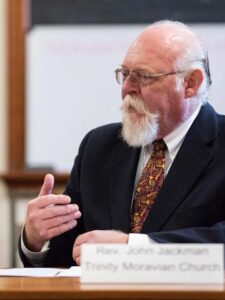
The Rev. John Jackman explains how their Debt Jubilee Project works. Photo courtesy of Allison Lee Isley, Winston-Salem Journal.
The Rev. John Jackman, pastor of Trinity and organizer of the Debt Jubilee Project, said that the Governor’s plan was exactly the “carrot” that was neeeded to convince hospital systems to participate. He appealed to faith leaders across the state to educate their parishioners on the issue and encourage them to write hospital CEOs supporting the program. He also indicated that the Debt Jubilee Project will have a link making it easy for individuals to email the hospital CEOs in tehir region. This effort is also supported by the NC Justice Center, which is currently producing a documentary about the issue.
Jordan Montanez, an artist in Greensboro, told her story of an asthma attack and emergency room visit that ended up with a $12,900 bill – unpayable because her condition had caused her to lose her job. Working with DollarFor, she was able to get the bills eliminated — but along the lengthy journey the hospital’s decisions seemed to make no sense. Read Jordan’s story HERE.
Rev. Jackman said that many times, hospitals’ decisions to aggressively collect — or generously eliminate — medical bills are often opaque and arbitrary.
Click HERE to email hospital systems in Forsyth County (Atrium, Novant). Click HERE to email hospital systems statewide.
Hospitals that agree to the proposal will receive higher Medicaid payments than other hospitals. Participating hospitals would:
- Relieve all medical debt deemed uncollectible dating back to Jan. 1, 2014, for any individuals not enrolled in Medicaid with incomes at or below at least 350% of the federal poverty level — currently $90,370 for a family of three — or for whom total debt exceeds 5% of annual income;
- Relieve all unpaid medical debt dating back to Jan. 1, 2014, for individuals who are enrolled in Medicaid;
- Provide discounts on medical bills of between 50% and 100% for patients with incomes at or below 300% federal poverty level, with the amount of the discount varying based on the patient’s income;
- Automatically enroll people into financial assistance, known as charity care, by implementing a policy for presumptively determining individuals eligible for financial assistance through a streamlined screening and income validation approach;
- Not sell any medical debt for consumers with incomes at or below 300% federal poverty level to debt collectors;
- Not report a patient’s debt covered by these policies to a credit reporting agency.
Patients of participating hospitals will not need to take any actions to benefit from medical debt relief.
Watch the entire Round Table on WXII-12.
Read the Winston-Salem Journal’s report of the Round Table.
Photos courtesy of Allison Lee Isley, Winston-Salem Journal.


